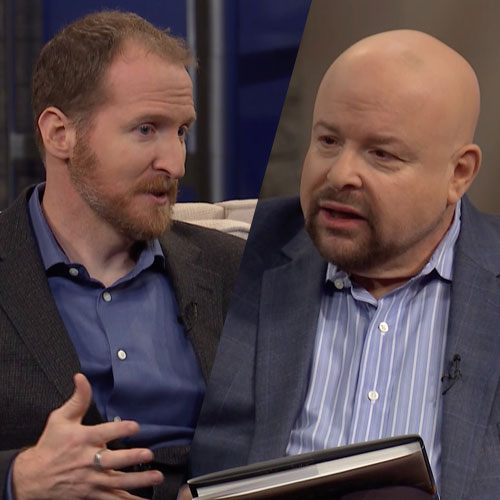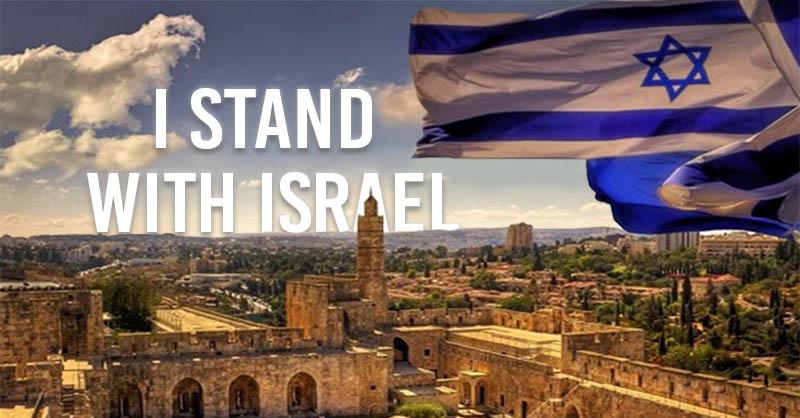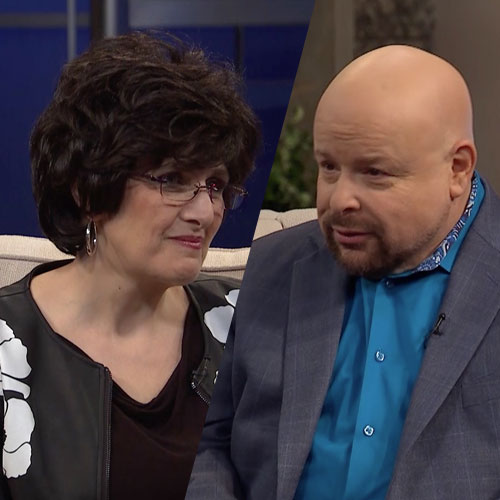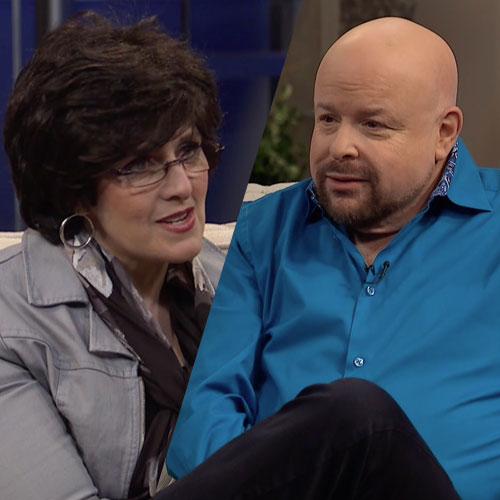Doug Hershey | Israel Rising


If you’re new to Messianic Judaism, you may be unfamiliar with many of the Hebrew words commonly used among Messianic Jews. We’ve put together a glossary of some words that will help you explore the beauty and richness that the Hebrew language and Jewish tradition can add to your New Testament faith.
baruch (barr-OOKH)
Baruch means “blessed.” Blessing God is an important part of Jewish and Messianic Jewish worship. Many blessings open with the phrase “Blessed are You, Lord our God, Ruler of the universe” and are followed by various lines specific to each occasion.
Brit Chadasha (BRIT Khah-dah-SHAH)
The Brit Chadasha is the New Covenant or New Testament of the Bible.
challah (KHAH-lah)
Challah is a sweet egg bread served on Shabbat and holidays. It is usually braided and can be made with many variations.
echad (eh-KHAHD)
Echad means “one.” More than a simple numeral, echad reflects a compound oneness that is fitting to describe God’s existence. Hear O Israel, the Lord our God, the Lord is one! (Deuteronomy 6:4).
Elohim (El-oh-HEEM)
Elohim is a name for God frequently used in the Old Covenant.
hallel (ha-LEL)
The literal translation of hallel is “praise.” In Jewish worship, “The Hallel” refers to the recitation of Psalms 113‒118 in the liturgy at various holidays.
HaShem (Ha-SHEM)
HaShem means “the name” and refers to the name of God. It is often included in blessings used in Messianic Judaism and traditional Jewish worship. Several Messianic congregations throughout the world are named Baruch HaShem, meaning “blessed be the name.”
kadosh (ka-DOSHE)
The translation of kadosh is “holy.” You will hear it often in prayers and worship songs within Messianic Judaism.
kedoshim (KED-oh-SHEEM)
The Tree of Life Version of the Bible replaces New Covenant references to Believers as “saints” with the Hebrew word kedoshim, which more clearly conveys the original meaning of the word as “holy ones.”
kippah (KEE-pah)
A kippah is also known as a skullcap or yarmulke (YAH-meh-kuh) in Yiddish. It is a small head covering worn by Jewish men during prayer, worship and teaching. It serves as a reminder of God’s presence and pre-eminence above man. Some non-Jewish men within Messianic Judaism also wear kippahs in the space of a Messianic Jewish synagogue.
kohen/kohanim (koh-HEN) (koh-ha-NEEM)
The word kohen means priest, and kohanim is its plural form. Have you ever met someone with the last name of Kohen, Cohen or Kahn? Their family name came from the ancient line of Jewish priests and often means their forefathers came from the sons of Aaron, the first high priest.
kohen gadol (koh-HEN gah-DOLE)
Many priests served the nation of Israel’s worship needs. However, there was only one high priest at a time. It was this kohen gadol who entered into the presence of God in the Holy of Holies once each year to bring atonement for the people. Messianic Judaism embraces Yeshua (Jesus) as our high priest who made complete atonement for our sin by His death (Hebrews 6‒10).
lashon hakodesh (lah-SHONE ha-KO-desh)
Hebrew is known as the lashon hakodesh, the “holy tongue,” spoken for millennia by God’s chosen people. It is the language of the Old Covenant Scriptures and is rich with subtleties and nuances that English often does not capture. In Jonathan Bernis’ Confessing the Hebrew Scriptures series, you can learn to proclaim and pray Scripture in the lashon hakodesh.
Mashiach (Mah-SHEE-akh)
The word Mashiach means Messiah or anointed one. The Old Covenant is filled with promises of the coming Messiah, the anointed one of God. The Brit Chadasha, or New Covenant, reveals Jesus as the Jewish Messiah prophesied throughout the Holy Scriptures. Most Jewish people still wait for the Messiah’s appearing while Messianic Jews recognize Him as Yeshua.
mezuzah (meh-ZOO-zah)
A mezuzah is a small container placed on the doorposts of homes. A little scroll of Scripture is placed inside according to the Torah’s command of Deuteronomy 6:4–9. Mezuzahs remind Jewish people that we are to love the Lord with all our heart, mind, soul and strength. As an intentional act of remembrance, many Jewish people and Messianic Jews make a point of touching the mezuzah as they pass through doorways affixed with them.
mitzvah (mitz-VAH) / mitzvot (mitz-VOTE)
The Hebrew word for “commandment” is mitzvah. When a Jewish boy goes through his Bar Mitzvah ceremony, he becomes a “son of the commandment.” Mitzvot is the plural of mitzvah, meaning commandments.
Moad (MO-ed) / moadim (mo-eh-DEEM)
The Hebrew word used in the Bible for a Feast of the Lord is moad, which means “appointed time” (see Leviticus 23). The plural form is moadim.
parasha (par-a-SHAH)
The parasha is a weekly Scripture reading recited in Jewish synagogues. Each week the parasha – meaning portion in Hebrew - includes a part of the first five books of the Bible, called the Torah or Pentateuch. By the end of the year, worshipers have read the entire Torah, and the cycle begins again. Messianic Judaism continues this tradition connecting the parasha to images of Yeshua found in the Torah.
Pentateuch (PENT-ah-touk)
The Pentateuch comprises the first five books of the Hebrew Scriptures (Old Covenant), which were written by Moses. This collection of instructional books is also known as the Torah.
ruach (ROO-ach)
The Hebrew word for “spirit” is ruach.
Ruach HaKodesh (ROO-ach Ha-KO-desh)
“The Holy Spirit” is known in Hebrew as the Ruach HaKodesh.
Selah (SAY-lah)
You’ve probably noticed this little word in the book of Psalms. It typically appears between passages within a single psalm. It means “pause,” and it is a directive to the reader to linger a moment and reflect on what was just read before moving on to the next verse.
Shabbat (Shah-BAHT) / Shabbatot (Shah-bah-TOTE)
Shabbat means “Sabbath” and is the seventh day of the week, or Saturday on the Gregorian calendar. The word Shabbat means “rest” reflecting back to the Lord’s rest after six days of Creation. The Jewish day begins and ends at sunset, so the Shabbat starts on Friday evening when the sun goes down and ends at sunset on Saturday. Synagogues and Messianic Jewish congregations conduct services on either Friday evening or Saturday morning, sometimes both. Several of the biblical Feasts call for a Shabbat, a rest, on a particular day. On these holy days, God commanded that no work be done, just as for the weekly Shabbat. Shabbatot is the plural of Shabbat.
Shalom (shah-LOME)
You may already know that shalom means “peace.” What may be new to you is that the word conveys much more than that. It also denotes the concept of “completeness” and “wholeness.” Knowing the fuller meaning of shalom enriches our understanding of Scripture – especially such passages as Psalm 122:6 in which God commands us to pray for the shalom of Israel and John 14:27 in which Yeshua told us about the extraordinary peace He gives. Shalom can also be used as a greeting and farewell.
Shema (Sheh-MAH)
Shema means “hear, listen.” It is the opening word used in Deuteronomy 6:4. The Shema is a Jewish prayer recited morning and evening taken from three Scripture passages (Deuteronomy 6:4‒9, 11:13‒21 and Numbers 15:37‒41). Messianic Judaism has adapted the Shema, and it is commonly sung to open worship services and prayer gatherings.
Shema Yisrael (Hear O Israel)
Adonai Eloheynu (the Lord our God)
Adonai Echad (the Lord is one).
Baruch Shem Kavod (Blessed is the name of His glorious)
Malchuto L’olam Vaed (Kingdom for all eternity).
shofar (SHO-far) / shofarim (sho-far-EEM)
The shofar is a ram’s horn that is blown like a trumpet. When Joshua and the Israelites circled the city of Jericho and on the seventh day blew trumpets that frightened and confused the inhabitants, it was this type of horn they blew. (See Joshua chapter six.) The shofar is used today in Jewish synagogues and Messianic Jewish congregations as a call to worship and on various Jewish holidays. Shofarim is plural.
tallit (tah-LEET)
A tallit is a woven prayer shawl worn during worship and prayer, primarily by men.
Talmud (Tal-MOUD)
The Talmud is the collection of Jewish oral tradition interpreting the Torah.
Tanakh (Tah-NAKH)
The Tanakh is the entirety of Hebrew Scriptures, known to Christians as the Old Covenant or Old Testament. The word Tanakh was formed from the first letters (TNK) of the three sections into which the Jewish Scriptures are divided: the Torah (instruction), Neviim (prophets) and Ketuvim (writings).
With warmth and transparency, Jewish Voice’s own Messianic Rabbi Jonathan Bernis shares a compelling case for Jesus as Messiah and presents overwhelming evidence that can be traced to the Torah itself.
tefillin (teh-fih-LEEN)
In Deuteronomy 6:4-9, God commands Jewish people to diligently keep, speak of and teach His Word. He instructs them to bind it on their hands and foreheads and place it on their doorposts. Tefillin are small boxes that Jewish males tie onto their upper arm and forehead with long straps. The boxes have Scriptures inside in keeping with this commandment and are worn each weekday morning.
teshuva (teh-SHOO-vah)
Teshuva is the Hebrew word for repentance and means “turning back” or “returning.” Teshuva is vital to restoring one to a right standing with God and is especially highlighted from the month preceding the Feast of Rosh Hashanah and through Yom Kippur, the Day of Atonement.
Torah (TORE-ah)
Torah means “instruction.” The books of Moses comprise the Torah. These are the first five books of the Hebrew Scriptures, which are also called the Pentateuch. The Torah is part of the Tanakh.
tzedakah (tzeh-DAH-kah)
The Hebrew word for righteousness or acts of charity is tzedakah. Jewish synagogues and Messianic Jewish congregations commonly have a “tzedakah box” designated for giving money toward charity.
tzitzit (TZEET-zeet)
The long fringes attached to the four corners of a tallit are called the tzitzit. They are a reminder of the Lord’s commandments, that Jewish people would perform them as the Lord instructs.
Yeshua (Yeh-SHOO-ah)
Yeshua is the Hebrew name for Jesus. It means “salvation.” Messianic Jews recognize Yeshua as the Messiah revealed throughout the Hebrew Scriptures.
Yeshua HaMashiach (Yeh-SHOO-ah Ha-Mah-SHEE-akh)
Yeshua HaMashiach means “Jesus the Messiah” in Hebrew. The word Christ is not found in the Hebrew Scriptures. It is from the Greek word christos, which bears the same meaning as Messiah, that of “anointed one.”
The Messianic Jewish Family Bible is the first and only of its kind. This exciting new Bible translation unites Old and New Covenant with a consistent Hebraic perspective.

First, I witnessed the great joy and excitement at the recent 70th anniversary of the creation of the State of Israel. And then all of us who love Israel celebrated the great breakthrough of having the U.S. Embassy move to Jerusalem – acknowledging for the first time that Jerusalem is Israel’s legal and rightful capital.
It may be hard for us to imagine how important these developments are to Israel, except to say they’re truly historic!
But even as we celebrate, the enemies of Israel and the Jewish people have not given up. We must remain vigilant to the dangers that continue to threaten Israel. And because I believe you’re someone who loves and supports the Jewish people, I’m asking you to join me and let your voice be heard.
Won’t you please take just a few moments to share your support of Israel with your friends and family on Facebook? We've made it easy; just click here.
Israel’s security should be a concern to all Americans who understand that the Jewish State is our greatest ally in the Middle East. A strong Israel is our best chance for stability in that volatile region. I trust you agree.
But just look at what’s happening to undermine the safety and security of the Jewish people …
As a friend and partner with Jewish Voice Ministries, you know that we support Israel and encourage others to stand against anti-Semitism and pray for Jewish people.
This support is based on our belief that the reestablishment of a Jewish homeland was a key milestone in God’s plan to bless the Jewish people … and all people.
We can no longer sit by and watch as Israel’s enemies – driven by bald-faced anti-Semitism – work to isolate, destabilize and, ultimately, destroy the Jewish State.
So please add your voice to those speaking out against anti-Semitism by sharing your support on Facebook. Your views will encourage others to stay strong in the face of pressure, and support Israel.
After you share on Facebook, please give a special gift to support and protect Israel in these critical days. Now is the time for us to take a strong stand for Israel – before it’s too late.
When you give now – and I hope you’ll be moved to give generously – I’ll be pleased to send you a thank you gift as our way of saying thank you for your prayers and partnership.
Please let your voice be heard and your love take action. Share on Facebook now.
Jewish Voice Ministries shares biblical insight as to why God wants you to have a heart for Israel and the Jewish people. Take this quiz to discover how much you know about the State of Israel, the Promised Land, and God's chosen people.


"Lebanese Parliament Speaker Nabih Berri said Iranian and Hezbollah forces will not withdraw from Syria until the country is ‘liberated’ and its ‘territorial integrity is restored,’” The Jerusalem Post reported this week.
Meanwhile, on the other side of the country, rocket sirens blared throughout the early morning hours yesterday in the south, as 45 rockets and mortar shells were reported fired toward Israeli towns, prompting rounds of Israeli airstrikes on Hamas military sites in the Gaza Strip.
At least six rockets fired from the coastal enclave landed inside Israeli communities adjacent to the border, including one that struck just outside a kindergarten, Israeli officials said.
In the last two months, 488 fires were started through kite and balloon terror, destroying 7,166 acres of fields and forests along the border. Finally, in retaliation, the Israeli Air Force responded with the attacks against several known Hamas targets in the Gaza Strip.
In recent weeks, Israeli jets repeatedly have hit Iran and Hezbollah positions along the Syria-Israel border. In late May, Russian President Vladimir Putin called for all non-Syrian forces to leave the country, vowing to work with the U.S. to protect Israel’s borders with Syria. Then, this week, Iran and Hezbollah refused to pull back.
The British-based Syrian Observatory for Human Rights (SOHR), a non-government organization, reported, “All that has happened is a media withdrawal.”
Hezbollah is a Lebanese militant group and political party founded in 1985 with the two-fold goal of establishing an Islamic government across the Arab world and obliterating Israel. The U.S. State Department labeled it a terrorist organization in 1997.
“We do not want to destroy or kill or throw anyone into the sea,” said Hassan Nasrallah, Hezbollah’s leader, responding to Russia’s demand. Speaking to Israeli citizens, he warned, “Get on your planes and boats and go back to the countries you came from. If you insist on the occupation, the day of the great war is coming, the day we will all pray in Jerusalem.”
Author, security consultant and analyst Joshua Gleis wrote for ynetnews.com this week that Hezbollah “has an abundance of sophisticated weaponry from Iran, Syria, China and Russia … the group has more rockets than nearly all NATO countries.”
Additionally, he says, “(Hezbollah) has cooperation and coordination with the (US-backed) Lebanese Armed Forces (LAF) as well as the Lebanese government. It has a government in Syria that owes it its very existence and which is awash with Iranian Revolutionary Guard ‘advisors’ that sit close to Israel’s borders. It has UAVs and missiles capable of targeting cities, ships and aircraft alike.
”Add to that the years of experience Hezbollah has gained in fighting US-backed forces such as the Kurds as well as terrorist groups such as ISIS, and Israel has itself one seriously formidable foe.”
In the meantime, Israel continues to prepare for war on all sides. Actions have included strengthening relationships with such countries as Saudi Arabia.
“Those who still use the term Israeli-Arab conflict, you are out of date,” said former Israeli defense minister Moshe Ya’alon in a recent security meeting. “There are shared interests that have brought the Sunni Arab camp, led by Saudi Arabia, to be in the same boat with us.”
The enemies of Israel – and, therefore, enemies of God – will be thwarted
God’s will of peace for Israel will be realized
Do you want to know how to pray for Israel in greater detail and depth? Jewish Voice Ministries has put together this Intercessory Prayer Guide for Israel that provides focused, targeted requests to help you pray for the nation of God’s People. We hope this prayer guide can help both Messianic Jews and Christians pray their support for Israel.
1. Formation
Before Yeshua’s death, His earthly ministry focused on Jewish people. He told the Canaanite woman that He “was sent only to the lost sheep of the house of Israel” (Matthew 15:21‒28). After His resurrection, He issued the Great Commission, commanding His disciples to take the Gospel into all the world (Matthew 28:16–20).
That message was confirmed in many ways throughout the book of Acts. Notable examples include when Peter was sent to Cornelius after a rooftop vision (Acts 10), and Phillip preached in Samaria and also explained the Scriptures to the Ethiopian (Acts 8). The Formation years of Jewish faith in Jesus extend from 33‒135 C.E., and the term Messianic Judaism would not be used for nearly 2,000 years.
2. Gentilization
As the Gospel was opened to the Gentiles and many came to believe in Yeshua, the question emerged of whether they were required to keep the Torah (Acts 15). This reveals that faith in Yeshua was considered a Jewish faith, not a new religion. By 135 C.E., a rift had grown between Jewish Believers and the rabbinical leaders of Judaism.
False notions sprung up that a Jewish person cannot believe in Yeshua, and if they do, they cannot remain Jewish. The Bar Kokhba Revolt furthered this division. The Roman Emperor Constantine severed the Christian Church’s connection with Judaism when he declared the Church officially divorced from the rites and practices of the Jewish people.
Successive centuries witnessed the progressive Gentilization of faith in Jesus. This period extends from 135 C.E. to about 1800 C.E., encompassing the Crusades and the Inquisition. During these violent episodes, Jewish people suffered intense persecution as politically powerful leaders of institutional Christianity” attempted to force them to renounce Judaism and “convert."
3. Jewish-Christian Renaissance
A resurgence of Jewish people coming to faith in Yeshua while retaining their Jewish identity occurred between 1800 and 1870 C.E. During this time, a number of individuals played essential roles in laying the groundwork for what would later become Messianic Judaism. Among these leaders was Joseph Rabinowitz, who founded the first Messianic Jewish congregation. There, Jewish Believers in Jesus could worship Him and freely maintain the practices of their Jewish heritage. The congregation, located in Kishinev, Moldova,* was called “Israelites of the New Covenant."
4. Hebrew Christianity
Alliances of Jewish Believers began to form around the world between 1870 and 1960 C.E. This was a significant change within the realm of Jewish Believers in that, as followers of Jesus, they met to continue to identify as “Hebrews.” The Hebrew Christian Alliance of Great Britain was established in 1866 and, in 1915, the Hebrew Christian Alliance of America was founded. The international Hebrew Christian Alliance began in 1925, including representation from 18 nations. The era of Hebrew Christianity opened the way for what we know today as Messianic Judaism.
5. Messianic Judaism
Messianic Judaism’s genesis is intertwined with the Jesus Movement of the 1960s. During that revival, many young people with strong, ethnically Jewish backgrounds came to faith in Yeshua. Societal changes of that time offered these young Jewish people the freedom to maintain their Jewish heritage and practices while embracing faith in Jesus as their promised Messiah. The attitude shifted from “We’re Christians who happen to be Hebrew,” to “We are Jews who believe in Jesus,” representing a new mindset that shaped the modern movement of Messianic Judaism.
Since 1960, many new Messianic Jewish congregations, organizations and ministries were formed, including what would become Jewish Voice Ministries International, originally founded under the name Jewish Voice Broadcasts by Louis Kaplan in 1967. During this time, hundreds of Messianic congregations were established around the world, including in Israel. Today, more than 350,000 Messianic Jews worship in their own congregations worldwide, with approximately 20,000 of those residing in Israel.
Messianic Judaism remains a relatively new movement. In less than 60 years, Messianic Judaism has emerged as a vital indicator of God’s ongoing work within and commitment to Israel and the Jewish people. As Messianic Jews and congregations remain identifiably Jewish, the world sees that God is not finished with the Jewish people yet, and that the Gentile Christian Church has not replaced Israel. Messianic Judaism is drawing the world’s attention to the essential role of Israel – both the Land and her people – in God’s End-Time plans.
*More than 100 years after Joseph Rabinowitz established the first Messianic congregation, Jewish Voice Ministries’ Jonathan Bernis, at the time leading a Festival of Jewish Music & Dance in the same city of Kishinev, Moldova. Approximately half of the 40,000 people in attendance – an estimated 20,000 – came to faith in Messiah Yeshua.
